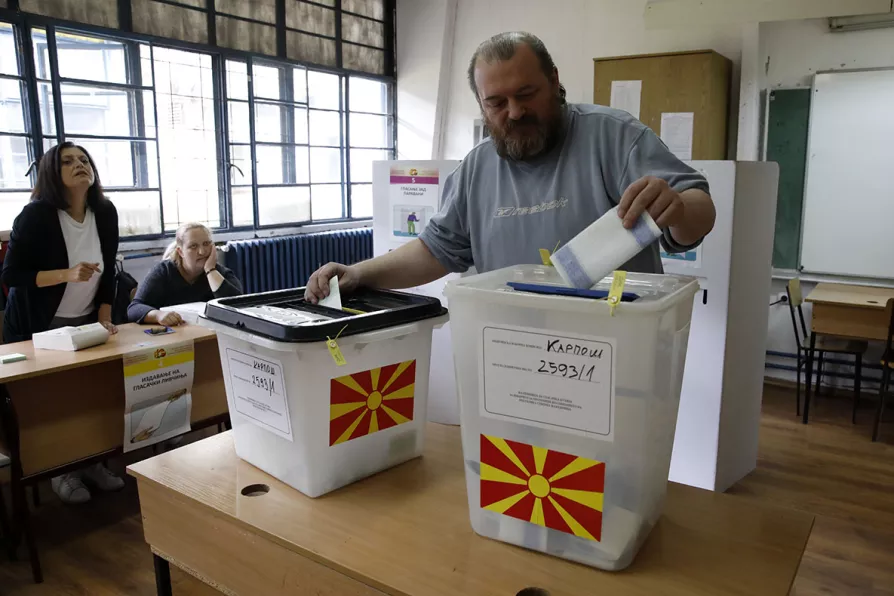Kitchens are expected to run out of food in coming days
World in brief: May 8, 2024

 A man casts his ballots for the parliamentary election and the presidential runoff, at a polling station in Skopje, North Macedonia, May 8, 2024
A man casts his ballots for the parliamentary election and the presidential runoff, at a polling station in Skopje, North Macedonia, May 8, 2024
THE BALKANS: China and Serbia signed an agreement today to build a “shared future,” making the country the first in Europe to do so.
After meeting in Belgrade, Chinese leader Xi Jinping and Serbian President Vucic announced they would “deepen and elevate the comprehensive strategic partnership between China and Serbia,” and “build a new era of a community with a shared future between” them.
Mr Xi travelled to Hungary later today. Like Serbia, Hungary is seen as one of China’s friendlier partners in Europe.
More from this author

Ben Cowles speaks with IAN ‘TREE’ ROBINSON and ANDY DAVIES, two of the string pullers behind the Manchester Punk Festival, ahead of its 10th year show later this month

Ben Cowles previews his interview with Stand Up to Racism’s SABBY DHALU for the Morning Star’s new Youtube channel














